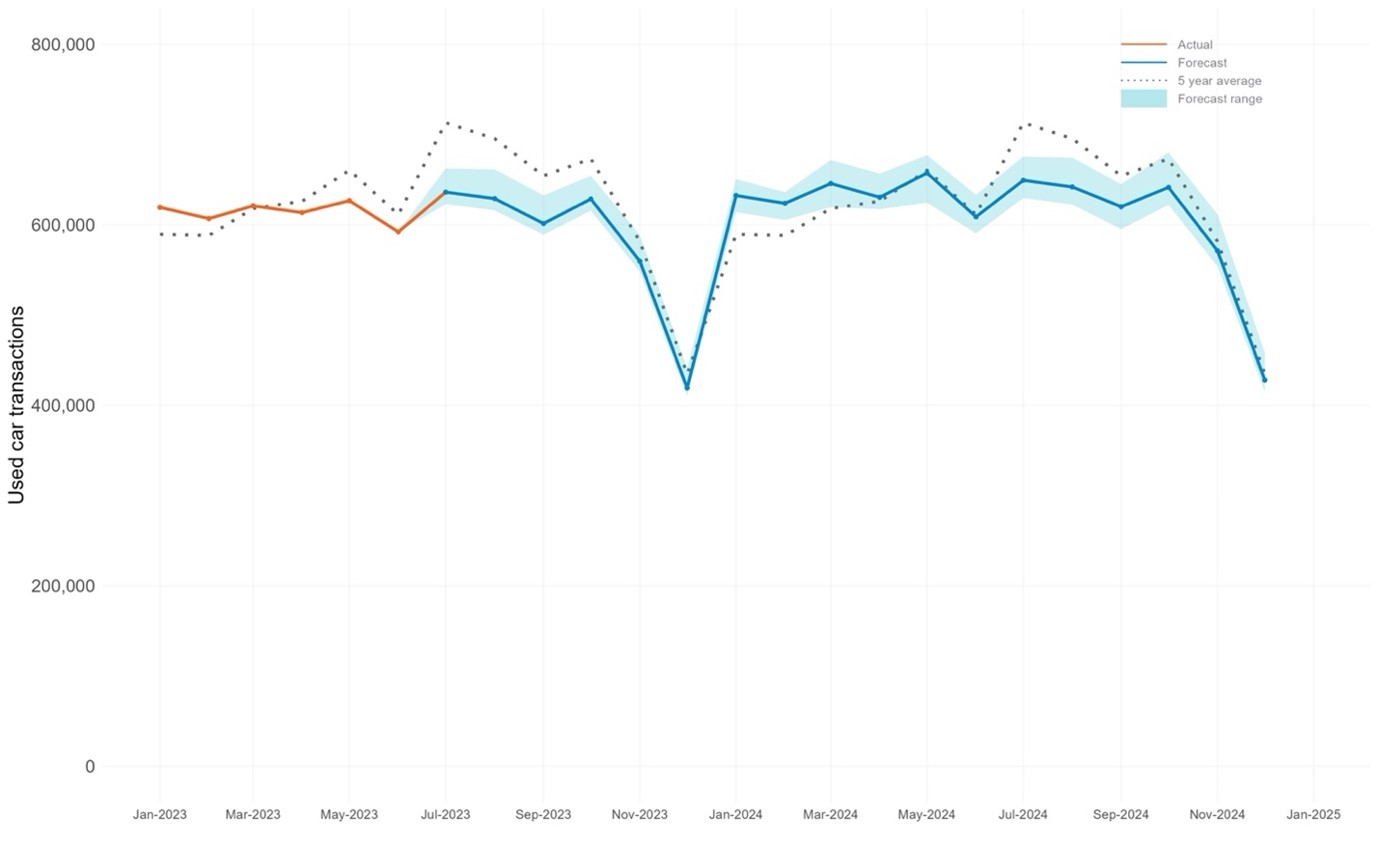The used market is now undergoing a transitional period, driving a realignment of values, according to Cox Automotive.
It is calling on fleets and dealers to trust the data and maintain a cool head during this period of volatile values.
It retains confidence in its forecast for the used car market, with its year-to-date baseline forecast of 5,545,530 units within 99.7% - or approximately 18,000 transactions - of the SMMT’s ‘actual’ figure of 5,563,576.
While a downbeat Q4 is anticipated with weak demand and increased supply, Cox Automotive believes its 2023 used car transactions forecast of 7.15 million remains achievable. This represents a 4% year-on-year increase, but 3% below the 2010 - 2019 averages.
Philip Nothard, Cox Automotive’s insight director, said: “Despite current concern about used car values and the impact of this on retail sales, we remain confident in our full year forecast and believe the year will close on 7.15 million used car transactions.
“We anticipated that the second half of the year would be significantly slower than the first. Our view that a softening in consumer confidence combined with a return to the over-supply of new cars, resulting in depreciation levels not witnessed since 2015 and easing transaction volumes, has proved accurate.”
According to Nothard, the used market is now undergoing a transitional period, driving a realignment of values.
He argues the importance of reflecting on historical data when evaluating the current situation.
Over the past two decades, the UK’s average annual used vehicle transactions stood at 7.4 million, with peaks exceeding eight million only occurring in 2016 and 2017.
The ratio of used-to-new transactions averaged 3.37:1, rising to 4:1 during the pandemic-induced pause in new car production.

“Current trade values remain unrealistically high despite the recent trade drops,” he explained. “A remarkable four-year period with minimal depreciation has contributed to this trend, with oversupply and the return of discounts, deals and incentives in the new car market creating an unsustainable cost discrepancy.
“Quite simply, used cars have become comparably unaffordable; at the same time, demand has eased, and the market is adjusting accordingly.
“While this dramatic depreciation will bring about some short-term pain for some, we must remember that over the long-term the sector has enjoyed a period of healthy returns, and we’re now returning to where we ought to be.”
While the prospect of the UK’s used car market returning to eight million transactions is an outlier, he says that the 2023 forecast of 7.15 million transactions is not out of kilter with historical demand. “The sector has bounced back from the lows of 2020 and 2021, and now prices are aligning accordingly,” he added.
“Since May, we’ve observed a decline in wholesale values, reflecting the return of volume to a market still grappling with economic headwinds.
“It’s a cliché, but we urge everyone in automotive to keep calm and carry on as this realignment of values plays out.
“Looking ahead to Q1 of 2024, we anticipate some seasonal stabilisation but no substantial bounce.”
Turning to the electric vehicle (EV) market, Cox Automotive believes that the recalibration of used EV residual values, gradually approaching parity with ICE vehicles, offers a positive trajectory for the electric vehicle market's future.
However, it says that the outlook for EV values remains uncertain. The growing presence of EVs in the wholesale market, coupled with advancements in battery technology, may introduce fluctuations in electric vehicle values for some time to come.





















Login to comment
Comments
No comments have been made yet.